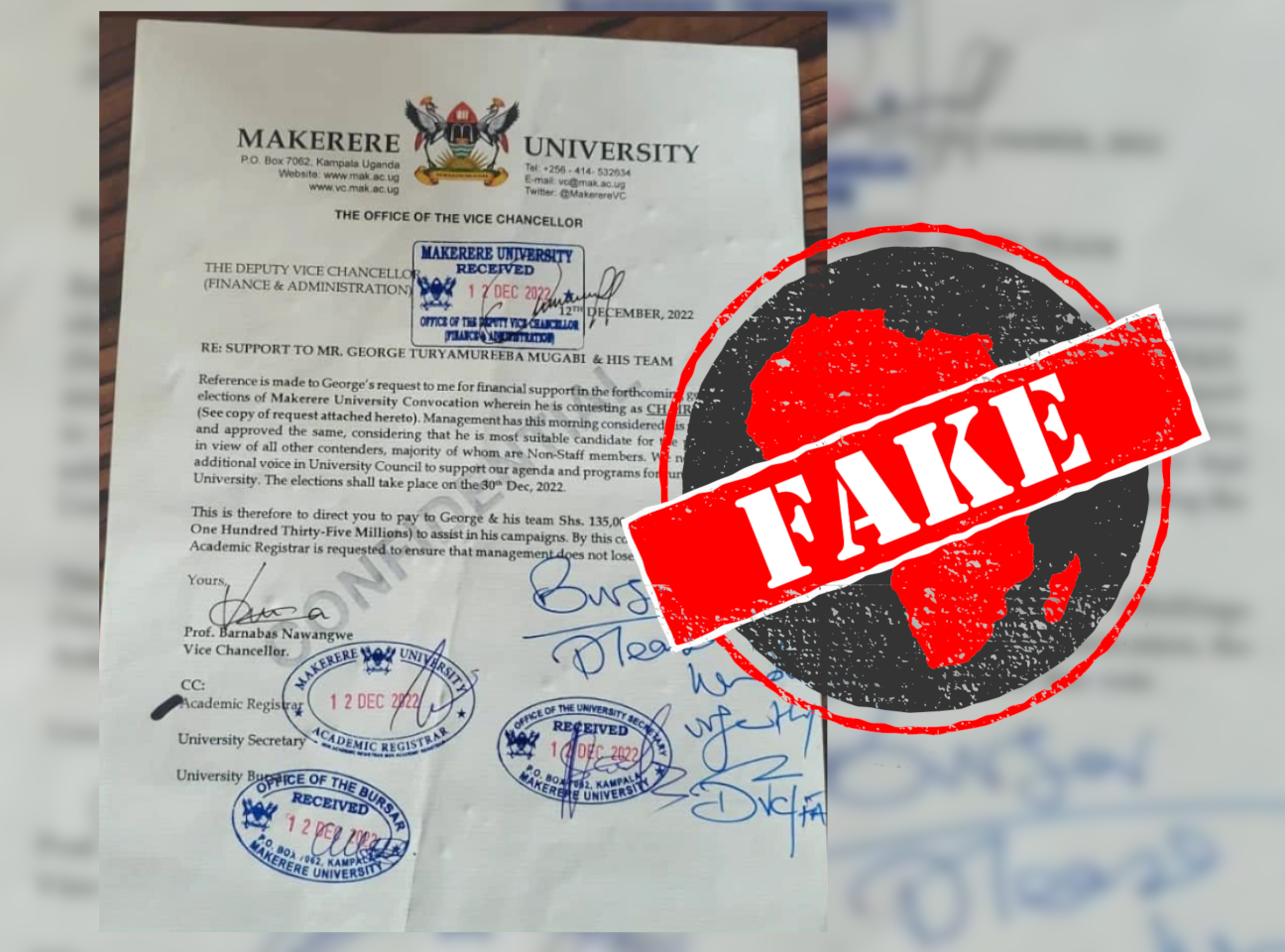IN SHORT: The chairperson of Makerere University represents the staff and alumni of the institution. A letter doing the rounds online, which claims management went all out in favour of one candidate in a recent election, has been faked.
As the repercussions over elections at Uganda’s most prestigious university continue to smoulder, a letter claiming that management gave a helping hand to the declared winner is circulating online.
The letter, dated 12 December 2022, appears to be from Makerere University vice chancellor Barnabas Nawangwe. It is addressed to the finance department, directing it to pay UShs135 million (about US$36,300) to “George & his team to assist in his campaigns”.
George Mugabi Turyamureeba was announced the winner of the 30 December 2022 elections, which were reported as being chaotic.
This would make him chairperson of the university’s convocation, an association of alumni and current staff. But other candidates rejected the results, citing irregularities and saying they would go to court.
In the document being shared, Nawangwe appears to endorse Turyamureeba as the best candidate for the position and asks the academic registrar to “ensure that management does not lose this vote”.
The document has been posted here, here and here.
But is it legitimate?

Signs document is fake
A major red flag are the explicit provisions in the letter, which would be problematic, especially if challenged in court.
And on the eve of the elections, the university dismissed the letter, calling it “fake”.
“#FakeNews Please take note that this letter circulating on various social media platforms is #Fake,” it tweeted on its official Twitter account on 28 December.
Republish our content for free
For publishers: what to do if your post is rated false
A fact-checker has rated your Facebook or Instagram post as “false”, “altered”, “partly false” or “missing context”. This could have serious consequences. What do you do?
Click on our guide for the steps you should follow.
Publishers guideAfrica Check teams up with Facebook
Africa Check is a partner in Meta's third-party fact-checking programme to help stop the spread of false information on social media.
The content we rate as “false” will be downgraded on Facebook and Instagram. This means fewer people will see it.
You can also help identify false information on Facebook. This guide explains how.


Add new comment